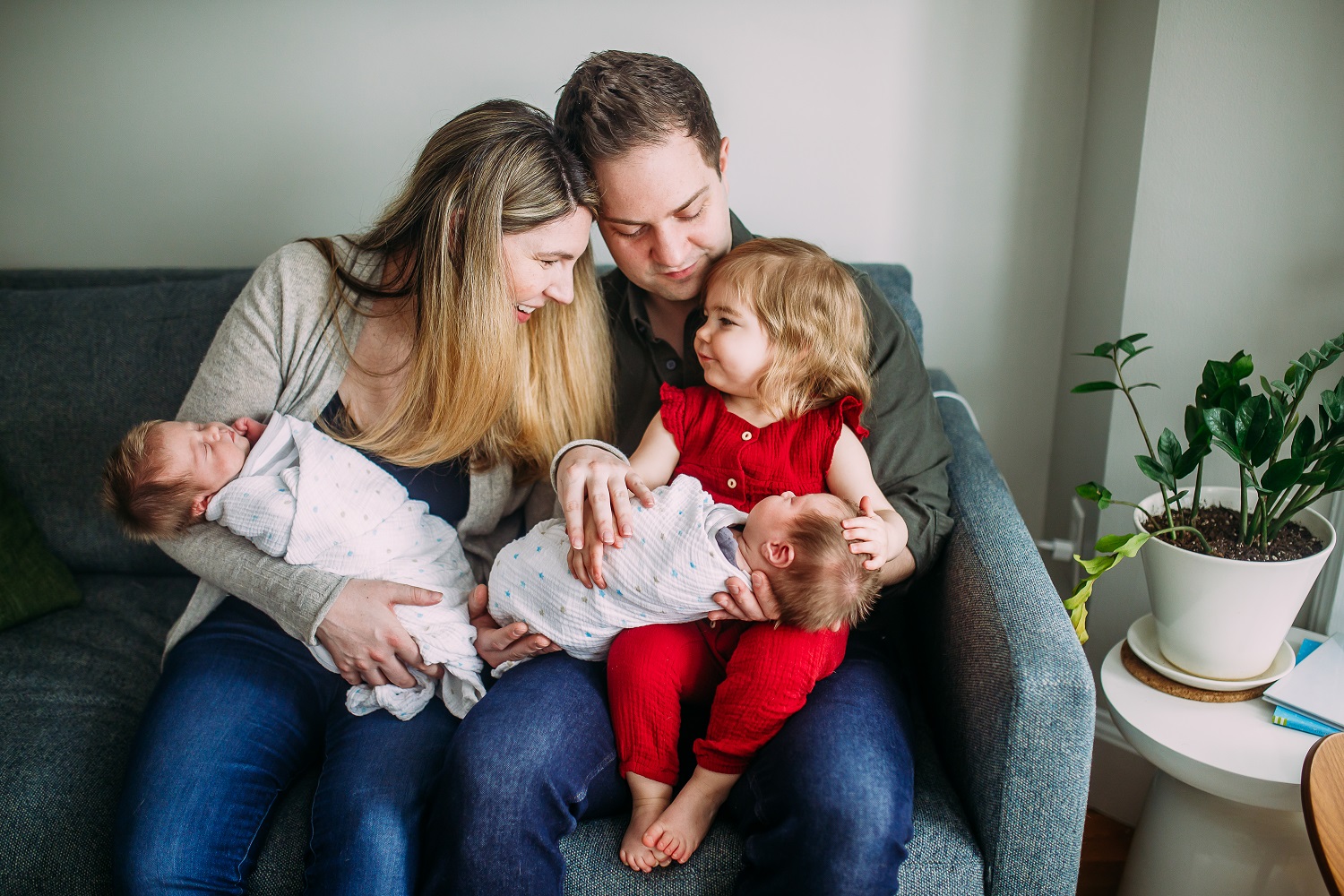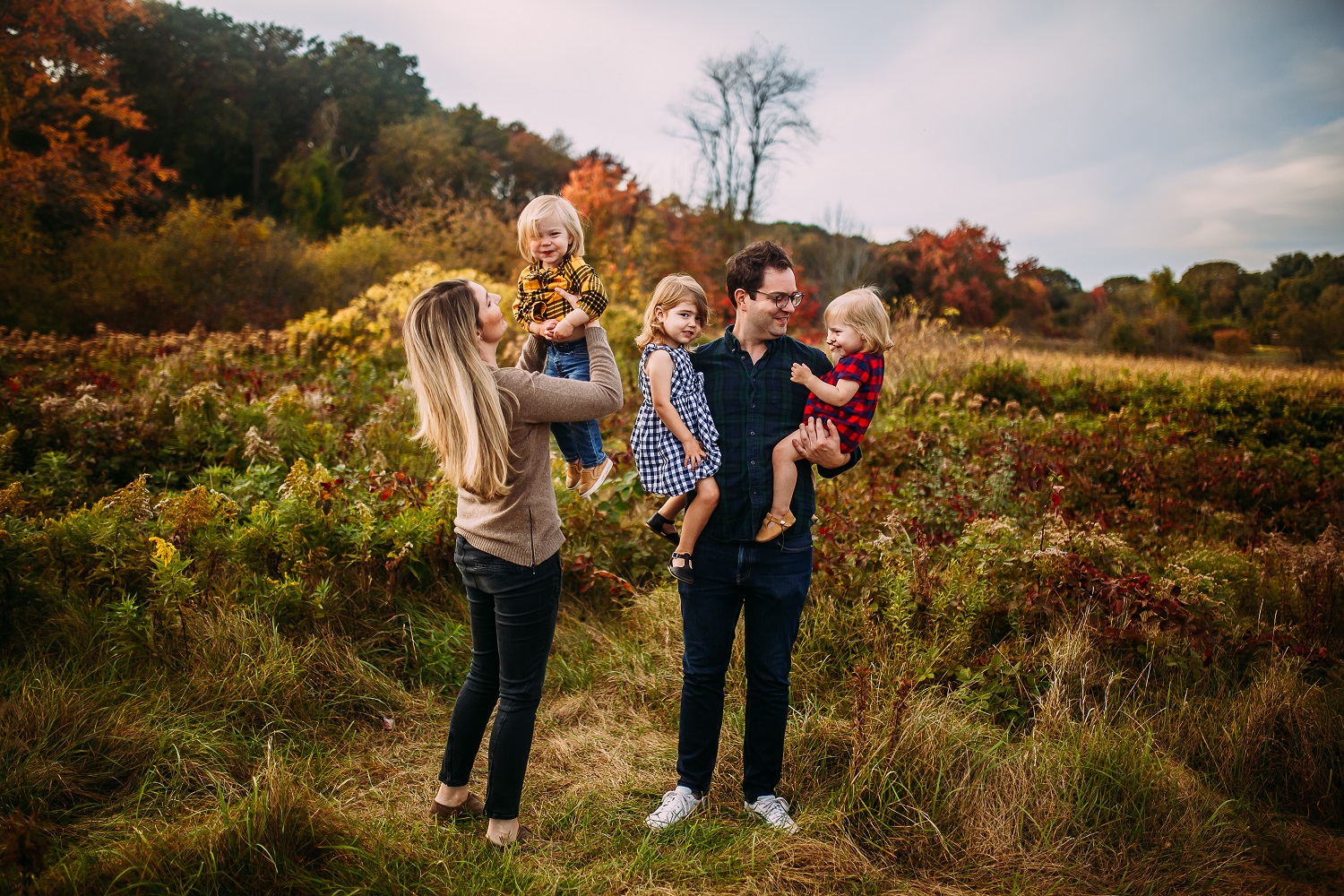Investigator Spotlight: Getting to know Brittany Charlton

Over the summer, we welcomed Brittany Charlton, MSc, ScD to the Department of Population Medicine faculty. A leading scholar documenting reproductive health disparities affecting sexual and gender minorities, Dr. Charlton also studies contraception use and family planning among people of all sexual orientations and gender identities. Her work often leverages data from large, prospective cohort studies, including the Nurses’ Health Study and the Growing Up Today Study.
In addition to her research, Brittany serves as the Co-Director of the Harvard SOGIE (Sexual Orientation and Gender Identity and Expression) Health Equity Research Collaborative and the Course Director for a number of classes across Harvard in epidemiology and reproductive health research.
In the realm of medical education, she helps to lead efforts with Harvard Medical School's Sexual and Gender Minority Health Equity Initiative—a multi-year enterprise to enhance the ability of medical school students and faculty to provide evidence-based care by integrating sexual and gender minority health content across the curriculum.
Join us as we learn more about Dr. Charlton (and to continue learning about her research developments, follow her on Twitter).
Q: Where are you from? What drew you to Boston?
A: I'm originally from Santa Rosa, California which is 60 miles north of San Francisco. Most of my family still lives in Northern California and it is one of my favorite places to visit. However, I absolutely love everything about living on the East Coast so the moment I graduated from high school, I moved to New York and subsequently came to Boston for graduate school.
Q: Tell us about your life before joining the Institute. How did you come to be a researcher?
A: My parents met at UC Berkeley during the Free Speech Movement so our dinner conversations often focused on social justice. My family includes a long-line of nurses so my pursuit of research, rather than clinical medicine, was a pretty unsuccessful attempt at rebellion.
After college, I did a year of AmeriCorps service at an LGBT (lesbian, gay, bisexual, and transgender) community health center and worked for various organizations including the ACLU. I then came to the Havard T.H. Chan School of Public Health to complete my MSc and ScD in Epidemiology before joining the faculty at Boston Children's Hospital and Harvard Medical School.
Q: Can you explain to us what you do?
A: My team focuses on health disparities that impact LGBT people. In particular, we research reproductive health and cancer inequities that arise from sexual orientation-related and gender identity-related discrimination.
Q: Describe one of your current projects. What excites you about this project?
We are just kicking off a 5-year NIH R01 grant focused on sexual orientation-related disparities in obstetrical and perinatal health. Our research over the last decade has revealed that, compared to heterosexual women, sexual minority women are vulnerable to poor gynecological health; for example, they are more likely to experience sexual assault and to encounter barriers to health care. Despite the mounting evidence of these gynecological disparities, we know almost nothing about the extent to which obstetrical and perinatal health differ across sexual orientation groups. This gap is especially troubling because sexual minorities have more risk factors (e.g., depression, substance use) for adverse obstetrical and perinatal outcomes compared to heterosexuals.
Q: You serve as Co-Director of the Harvard SOGIE (Sexual Orientation and Gender Identity and Expression) Health Equity Research Collaborative. Tell us more about your role there, what SOGIE does, and how this relates to medical education offered across Harvard.
The Harvard SOGIE Health Equity Research Collaborative is a 100+ person collaborative that brings together experts from diverse disciplines whose research focuses on sexual orientation, gender identity, and health. The collaborative supports researchers at all career stages through our works-in-progress meetings, professional development workshops, mentorship lunches, grant writing sessions, seminar series, and more. In the realm of medical education, I am leading efforts with Harvard Medical School's Sexual and Gender Minority Health Equity Initiative—a multi-year effort to enhance the ability of medical school students and faculty to provide evidence-based care by integrating sexual and gender minority health content across the curriculum. Through that initiative, I am creating a number of programs including a mentorship program as well as a continuing education curriculum for faculty that will soon be available worldwide.
Q: What do you look forward to most about being at DPM/the Institute? You’re also joining at an interesting time – how has the transition been?
The Institute has an excellent reputation for not only innovative research but also collegiality and mentorship. Therefore, I am most eager to connect with people and think about new collaborations. My research has primarily leveraged survey data but health services data can uniquely address the health needs of LGBT populations so I'm excited about the Institute being situated in a health plan. I joined the Institute amidst the remote work of the pandemic and, yet, countless people have gone above and beyond to welcome me. I'm looking forward to meeting more of the team in person and exploring how we can work together.

Q: When you’re not working, what do you enjoy doing in your free time?
My partner and I have three kids who keep us on our toes. Cabrie is 3 years old and our identical twins, Ailey and Adlin, are 1 year old. We are renovating a colonial revival house so we're often hammering away, reading Fine Homebuilding, or watching an episode of This Old House. My partner and I met 15 years ago met while standing in line at the original Shake Shack location in New York and bonded over our love of craft cocktails and food so when there aren't kids or hammers in our hands, you can find us at any number of our favorite spots--Sportello, SRV, Asta, O Ya, Sarma, Backbar, Drink, and Toscanini's.
INVESTIGATORS
Brittany CharltonCATEGORIES
Beyond the CV